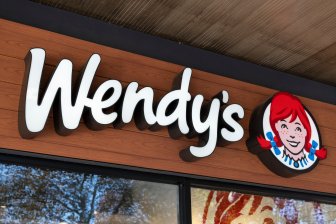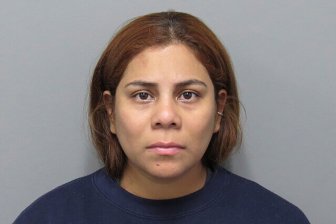As indications grow that Canada could be headed for a recession, Prime Minister Justin Trudeau has a warning for Canadians: next year will be “tough.”

In an International Monetary Fund (IMF) assessment released earlier this month, the global financial agency warned Canada is at risk of tipping into a “mild recession,” despite outperforming its G7 counterparts.
The warning comes after years of global economic upheaval — the result of several colliding factors, including the COVID-19 pandemic shutdowns and supply chain chaos, and Russia’s war in Ukraine.
While the resulting interest rate hikes, ballooning inflation and sky-high cost of living have battered Canadians’ bank accounts in 2022, 2023 isn’t looking any better, the prime minister told Global National’s Dawna Friesen in a year-end interview.

“Next year is going to be tough, too. It’s going to be a tough year,” he said.
“Global recession fears, slowing down in the global economy, interest rates continuing to be high, inflation still lingering — it’s going to be tough.”
Canadians will “get through” the year ahead if they stick together, Trudeau said, and pointed to what he described as “direct supports for Canadians” from the government.
“The coming winter is going to be tough for people, and that’s where we need to continue to pull together,” Trudeau added.
When pressed for examples of these “direct supports,” Trudeau pointed to the GST rebate, dental care, and low-income rental supports.
But he pushed back on the idea of implementing supports on the scale that the government rolled out during the COVID-19 pandemic. Any support, Trudeau said, will have to be “targeted” to avoid fuelling inflation even higher.
Canada stands with Ukraine as Russia's war bruises economy
One ongoing source of economic pain around the world has been Russia’s war in Ukraine.
Between of its impact on supply chains and Moscow’s decision to squeeze Europe’s energy supplies, the conflict is fuelling rising interest rates around the world and continuing to challenge supply chains, in particular with energy and food.
“We know that for all the challenges Canadians are facing with inflation, with food prices, with energy prices, it’s much worse in Europe and it’s much worse for Ukrainians,” Trudeau said.
“When we’re dealing with higher prices in the grocery store — which is no fun, it hurts — Ukrainians are paying with their lives.”

The war, which is now in its 10th month, has recently seen Russian forces target Ukraine’s civilian infrastructure, including water and electricity supply lines.
As winter weather blankets battlegrounds across Ukraine, millions of Ukrainians have been driven from their homes and tens of thousands have been killed, but the country continues to fight on.
As the conflict continues with no end in sight, Trudeau told Friesen he is “hopeful that it will not last indefinitely.”
“We are ready to stick with it as long as possible,” he added.
“Every conversation I’ve had with (Ukrainian President) Volodymyr Zelenskyy, or other Ukrainians, shows that they are ready to stand strong and push back against Russia as long as it takes — and we will stand with them as long as they need to.”
That’s because Ukraine, Trudeau said, is not just defending its territory — it’s also standing up for “the principles that underpin all of our democracies.”
Those democratic principles are facing increasing challenges, according to the government.
Defence Minister Anita Anand warned in May that the world “appears to be growing darker.”
“In this new world, Canada’s geographic position no longer provides the same protection that it once did,” she said during a speech to a conference of defence industry experts.
“And in this new world, the security environment facing Canada is less secure, less predictable and more chaotic.”
Canada must do more to respond to China: Trudeau
In response to evolving geopolitical challenges and this more “chaotic” world, the government unveiled its Indo-Pacific strategy late last month, laying out its plans to diversify its friendships — and trading partners — in the region.
The strategy includes $2.3 billion in funding in the region over the next five years, all while strengthening security and intelligence networks, deploying additional military assets, investing in cybersecurity infrastructure and diversifying Canada’s trade opportunities.
Canada plans to grow economic ties in India and Southeast Asia, while further strengthening existing ties with Japan and South Korea.
Multiple countries are showing major economic growth in the region, according to Foreign Affairs Minister Melanie Joly.
But the economic growth in the region comes as China is an “increasingly disruptive global power,” she has noted.

Trudeau echoed concerns about Beijing as he spoke to Friesen in his year-end interview.
“It is the second-largest economy in the world, growing, perhaps, to be the largest in the coming decades. And therefore, it’s a country we have to deal with,” the prime minister said.
However, Canada is contending with Beijing in a world where foreign interference is becoming more commonplace — a reality Trudeau acknowledged.
“In an era following Brexit and Trump and allegations in France and elsewhere … we saw that foreign interference was starting to be a real thing in all of our free and open countries,” Trudeau said.
“Therefore, we built mechanisms and ways for our agencies to lean in and take care of that. But there’s always going to be more to do.”
Questions about foreign interference have once again become an issue of political debate after Global News reported in November that Trudeau and members of his cabinet were allegedly briefed in January 2022 that the Chinese Consulate in Toronto directed a clandestine election-interference network in 2019, which intelligence sources allege is a loosely affiliated group of Liberals and Conservatives funded by the Chinese Communist Party to help advance its political objectives in Canada.
Other intelligence sources told Global News that the consulate disbursed $250,000 through proxies to the network, which allegedly included an Ontario MPP, at least 11 federal candidates and 14 staffers.
This information was not included in the briefing that sources say was provided to the prime minister or his ministers.
In response to repeated questions about his awareness of the 2022 briefing, the prime minister has only stated that he was not briefed on federal candidates receiving money from China. He has not specifically addressed the allegations about the network.
While Canadians need to be “reassured” about allegations China tried to interfere in a federal election, national security concerns make it difficult to share all the information Canadians want to know, Trudeau says.
“We know that Canadians need to be reassured. Canadians deserve to know what’s going on. At the same time, these are matters of national security, so we do have to be careful about that,” Trudeau said.
“But what I have asked is for our top intelligence officials and all the people who have that information to appear before a parliamentary committee and share as much as they possibly can with Canadians.”
The biggest concern everyone has, according to Trudeau, is whether the election was “compromised by foreign interference.”
“On that one, we can already say and are saying, no, they have held,” he said.
“But we’re going to have to make sure we’re continuing to be vigilant in the future.”
Friesen asked: “Can I ask you if you’ve seen anything in our reporting that is wrong? Are we getting things wrong about the level of interference?”
Trudeau said it is “really important” for journalists to be asking questions and highlighting concerns.
“What I want people to understand is that I have to be very deliberate when I talk about issues around national security and things that we know to not compromise operations or various things,” he said.

Trudeau said he believed there should be more emphasis that Canada’s election integrity held.
“But the other thing I’ll say, and as I have said is, I never got in all the briefings and all the serious briefings I got, I never got briefings on candidates receiving money from China.”
Friesen followed up: “Just to clarify the point, I don’t think our reporting has ever said that you were briefed specifically on candidates and naming candidates, but (of) a clandestine network, kind of a covert operation that funneled money.”
She continued: “People ask me, are you parsing your words?”
“I am being careful because we’re talking about very important issues of national security that involve operations and issues that you have to be thoughtful about. When I get ultra top secret briefings on what’s going on, there are limits on what I can share with people and what I can’t,” Trudeau said.
“But the reality is, that’s why I’ve asked our top intelligence officials to appear before a parliamentary committee to share what they know.”
When asked whether he’d consider introducing legislation to address the issue, Trudeau said the government is “looking at a range of things.”
“We’re going to be doing more,” he pledged.
Trudeau reflects on his political future
As the government adjusts its international posture to respond to growing geopolitical threats, so too must it contend with increasing threats here at home.
The growing frequency of harassment against Canadian public figures poses a “threat to democracy” that needs to be taken seriously, the country’s public safety minister warned in August.
His comment came shortly after Deputy Prime Minister Chrystia Freeland was verbally attacked in Alberta. In June, Mendicino also revealed that Canadian members of Parliament will be getting panic buttons amid a rise in death threats, intimidation and verbal harassment.
When asked to reflect on this growing trend, Trudeau said there are “going to be people who disagree with any position that we take.”
“You can’t govern for eight years, now, and do significant things, as we have, and keep everybody onside all the time,” he said.
The pushback, Trudeau added, tells him Canada needs “more good people” to get involved in politics — but the growing anger is making that increasingly difficult.
“It’s hard to convince people to get involved in politics now,” Trudeau said. “It’s harder to find good candidates. It is harder to convince people to step forward and represent their communities.”
Still, Trudeau said he believes Canada is well-positioned in a changing world and that there is much Canadians can be proud of even amid challenging times.
“There is so much to be proud of in this country. There’s so much to know that we are capable of meeting and conquering any challenge that comes our way,” Trudeau said.
“That for me, it is the greatest privilege of my life to be able to serve Canadians in this role and to know that I’m going to get to do it for many more years.”
— with files from Global News’ Amanda Connolly




Comments